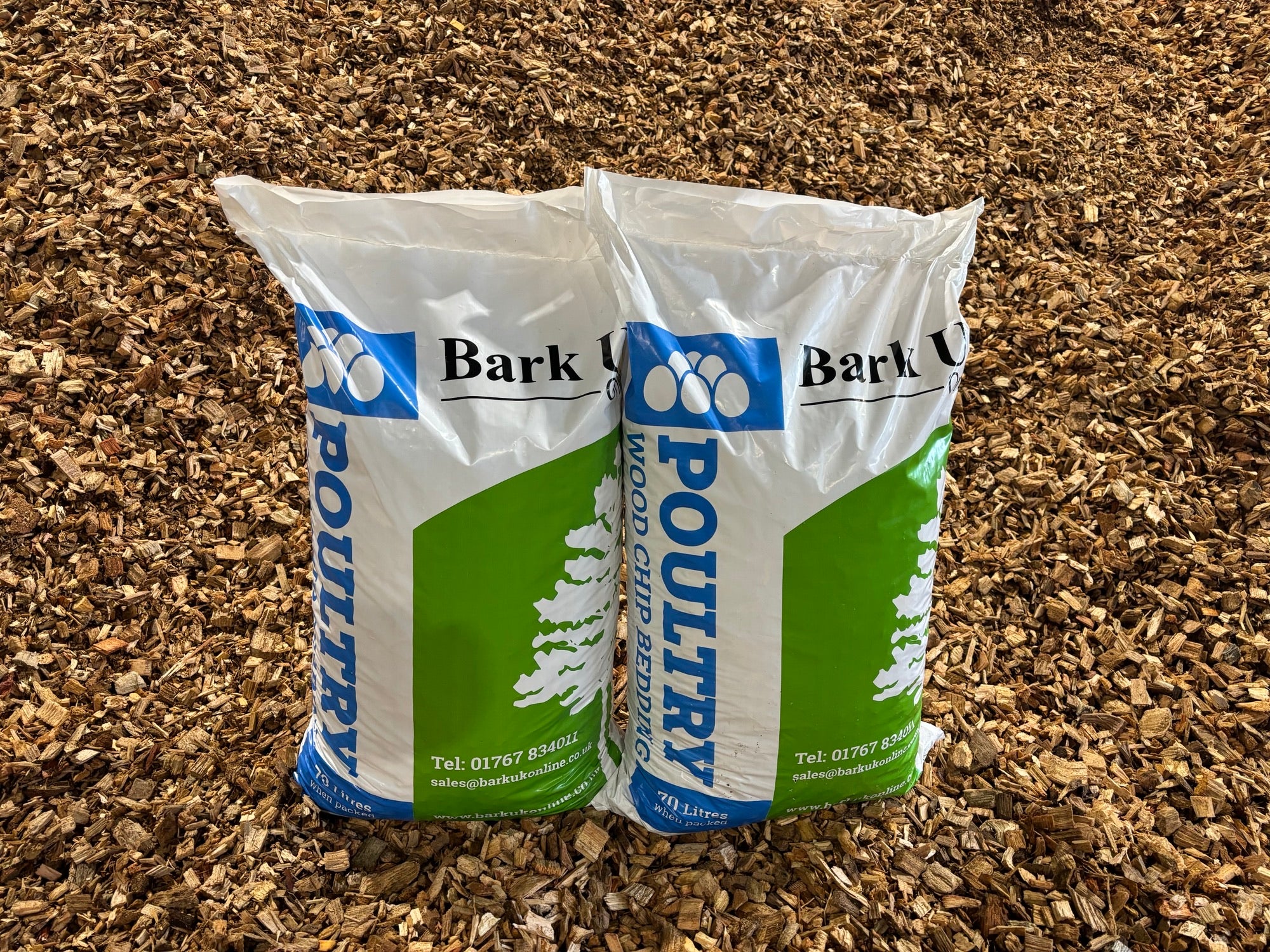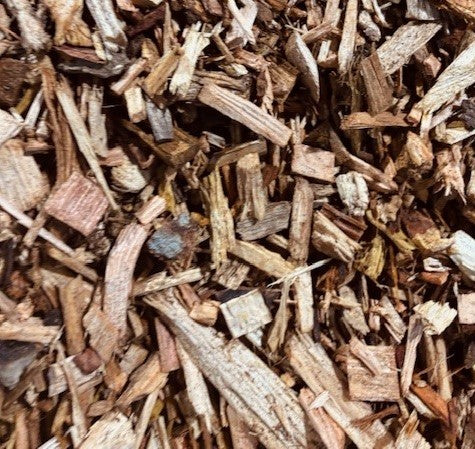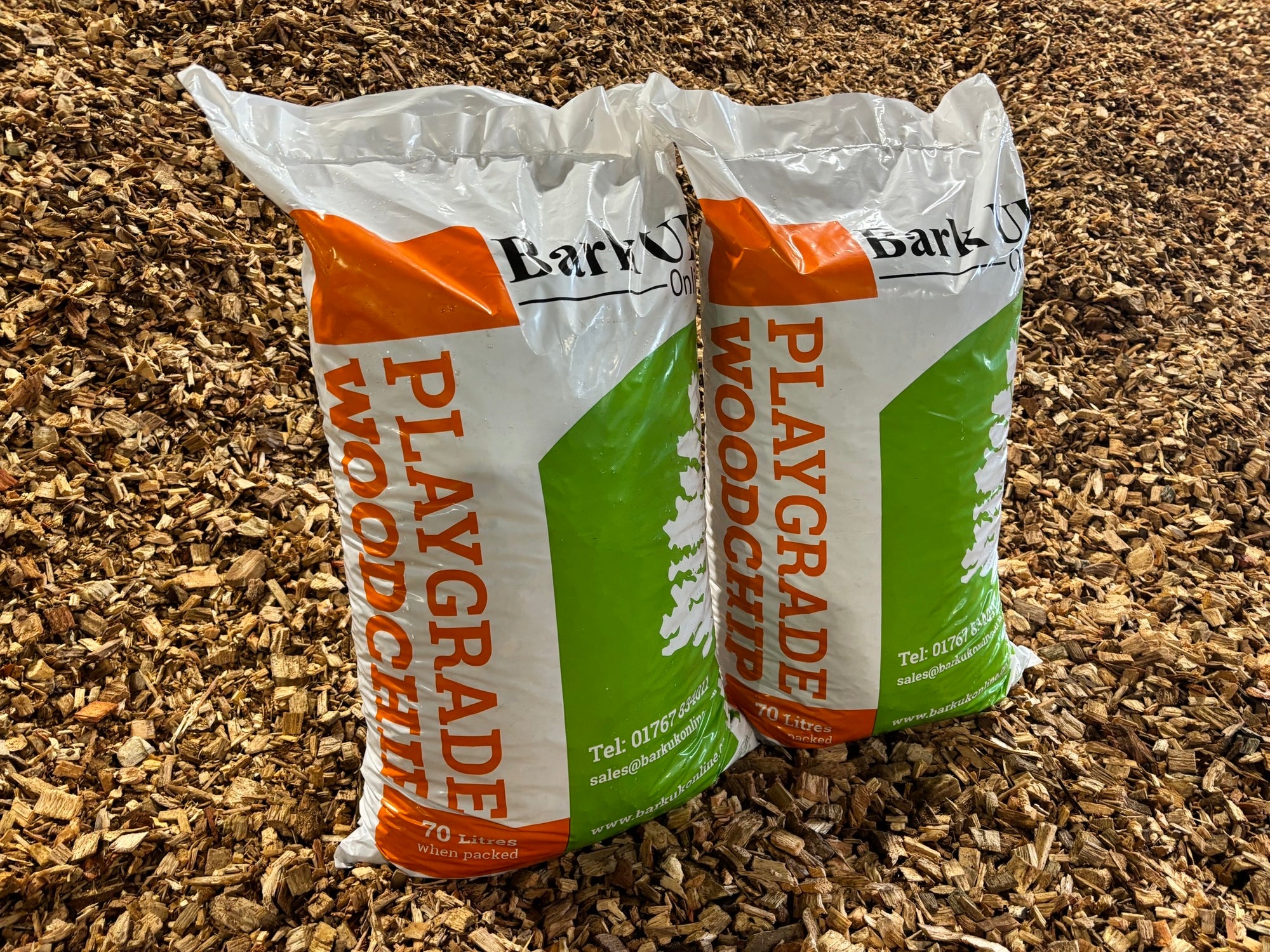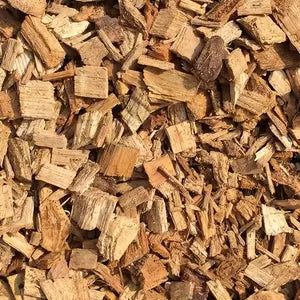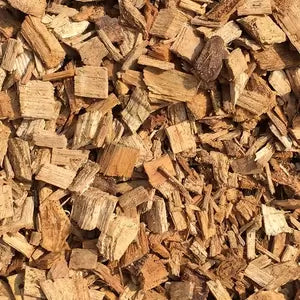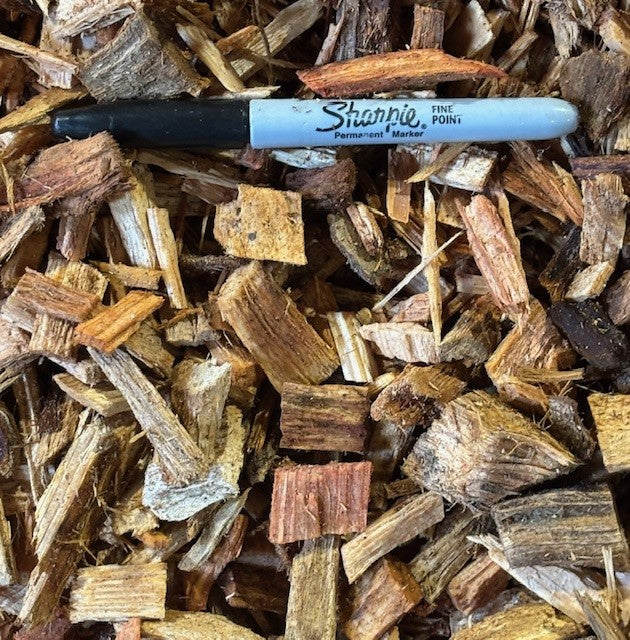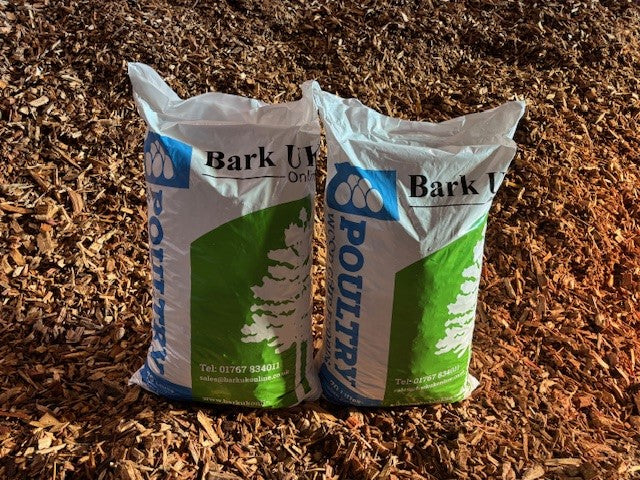The Importance of Bark Mulch for Retaining Moisture
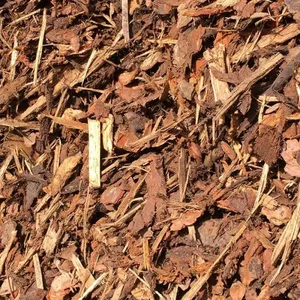
Mulching is one of the best things you can do for your garden if you want to keep it looking its best during the warmer months. Mulching helps your garden in many ways but retaining moisture is one of the most useful benefits it brings to any garden, especially in the summer and if we’re subjected to a dreaded hosepipe ban like previous years. Let’s take a closer look at the benefits of using bark mulch in your garden, as well as the most effective ways to use it.
How does Bark Mulch work?
Bark mulch works by creating a protective barrier over the soil that improves moisture retention regulates temperature, suppresses weeds, and improves soil health. By reducing evaporation, mulch ensures that plants have consistent access to water, essential for their growth, especially during hot periods. The mulch also acts as an insulator, keeping the soil cooler in summer and warmer in winter.
Benefits of Bark Mulch
Bark mulch is highly valued in landscaping and gardening not only for its aesthetic appeal but also for a variety of practical benefits, with moisture retention being one of the most significant.
Exceptional Moisture Retention
The leading advantage of using bark mulch, particularly types made from finely shredded hard bark, pine, and wood chips, lies in its excellent ability to retain moisture. These materials are porous and fibrous, allowing them to absorb rainfall or irrigation water easily and then gradually release this moisture back into the soil. This slow release is really useful during dry periods as it reduces the frequency of watering needed, conserving water and ensuring that plants receive a steady supply of the water they need even when there’s little or no rain.
Weed Suppression
Another significant benefit of bark mulch is its ability to suppress weeds and provide garden protection. By covering the soil, mulch for your garden creates a physical barrier that reduces the amount of sunlight reaching weed seeds, thus inhibiting their germination and growth. It is a natural form of weed control that reduces the reliance on chemical herbicides, making gardening more environmentally friendly. Pair your choice of mulch with a strong weed membrane and you can keep most weeds at bay.
Managing Temperatures
Mulch also plays a role in regulating soil temperature. During hot weather, mulch acts as an insulating layer that keeps the soil cool. In cold weather, it helps maintain warmer soil temperatures, protecting the roots from extreme temperatures. This stabilising effect is particularly beneficial for more vulnerable or hard-to-care-for plants or when there are significant temperature swings.
Soil Health Improvement
As natural mulch decomposes, it contributes organic make-up of the soil, improving soil structure and fertility. This decomposition process encourages the activity of organisms such as earthworms and microorganisms, which play valuable roles in nutrient cycling and soil aeration. Improved soil health leads to healthier plant growth and reduced susceptibility to diseases.
Aesthetic Appeal
The practical benefits of mulch are enough on their own, but it also brings visual appeal for your garden. Mulch can provide a clean, unified look which makes your garden’s main features, plants and trees stand out more boldly. You can also get bark mulch in different sizes and colours to suit your preferences for your home, with decorative mini bark and other styles adding a natural yet appealing aesthetic to your space.
Techniques for Garden Mulching
Applying mulch effectively will boost your garden's health and appearance. To get the most from your mulch, apply a 5cm-7cm layer evenly around plants, ensuring it is not piled against stems to prevent rot and disease. Regular maintenance is essential. Your mulch will decompose over time, and you will need to replace and replenish it to maintain its effectiveness and visual appeal.
The effectiveness of mulch will also be impacted by the soil type and local climate. For sandy soils that drain quickly, organic mulches like bark chips enhance water retention by slowing evaporation and improving soil structure. For clay soils, which naturally retain more water you can opt for a thinner layer to prevent waterlogging and allow for adequate drainage.
The time you choose to add mulch to your garden is also something to consider. Applying mulch in the spring helps conserve moisture for the growing season and suppress initial weed growth. It makes sense to all apply mulch each Autumn, getting your garden ready for the colder months. Mulching in Autumn will provide garden protection and help ensure your plants’ roots are guarded against frost and cold temperatures.
Improve your Garden with Quality Bark Mulch
Bark mulch is a natural choice for any garden, helping ensure that your plants are well-hydrated even in the drier months. A high-quality mulch will help your plants stay healthy whether it’s the wettest or driest month, optimising temperatures and keeping those weeds at bay. Our range of bark mulch options ensures you can find a type to suit your garden.


